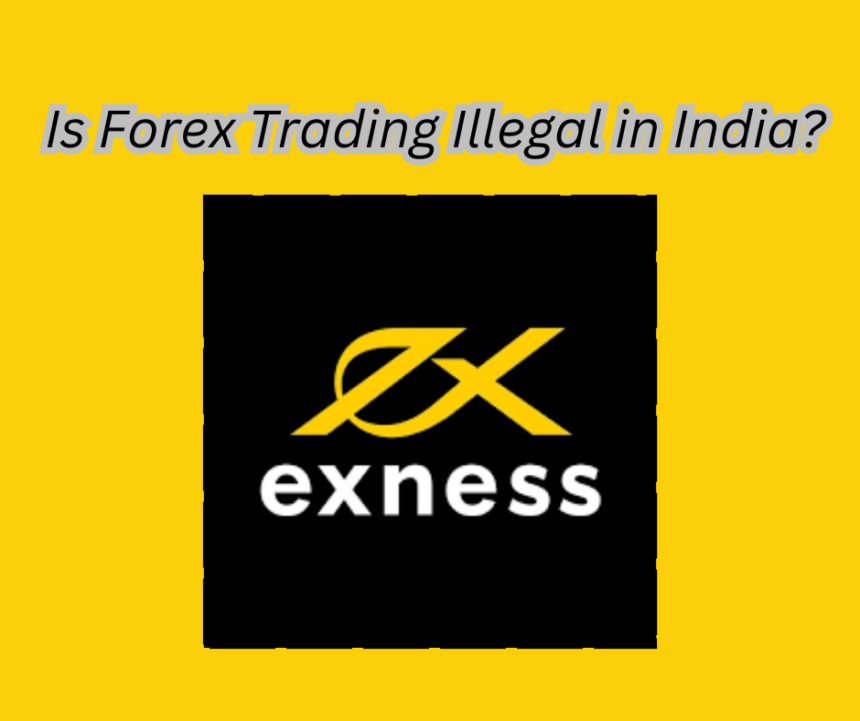Is Forex Trading Illegal in India? Understanding the Legal Landscape
Forex trading, or foreign exchange trading, involves the exchange of currencies on a global market. It’s one of the largest and most liquid markets in the world, attracting traders from various backgrounds. However, when it comes to India, the legality of Forex trading is a topic that often confuses many. This blog aims to clarify whether Forex trading is illegal in India and shed light on the relevant acts and laws governing this activity.
Understanding Forex Trading
Forex trading involves buying one currency and selling another simultaneously, aiming to profit from the fluctuations in their exchange rates. Traders use platforms provided by brokers to access the Forex market, which operates 24/5 across different time zones.
The Legal Status of Forex Trading in India
The Reserve Bank of India (RBI) and the Securities and Exchange Board of India (SEBI) are the key regulators governing financial markets in India. When it comes to Forex trading, their regulations are stringent, but that doesn’t mean it’s entirely illegal.
Forex Trading in Indian Rupees (INR)
Trading in currency pairs that involve the Indian Rupee (INR) is legal in India. This means you can trade in currency pairs such as USD/INR, EUR/INR, GBP/INR, and JPY/INR on exchanges like the National Stock Exchange (NSE), Bombay Stock Exchange (BSE), and Multi Commodity Exchange (MCX-SX). These trades are fully regulated and fall under the jurisdiction of SEBI.
Forex Trading in Foreign Currencies
The situation becomes more complex when dealing with currency pairs that do not involve the INR. According to RBI guidelines, trading in currency pairs that do not involve the INR is illegal in India if done through online brokers that operate outside India. This means that trading in pairs like EUR/USD, GBP/USD, or any other non-INR pairs on international platforms is not permitted.
The Acts and Laws Governing Forex Trading in India
Several acts and regulations govern Forex trading in India. Here’s a look at the most important ones:
1. Foreign Exchange Management Act (FEMA), 1999
FEMA is the cornerstone of India’s regulations regarding foreign exchange transactions. Under this act, Indian residents are not allowed to trade currency pairs that don’t include the INR on foreign platforms. The act aims to conserve and manage India’s foreign exchange resources and restricts Indian residents from undertaking certain transactions that may affect the country’s economic stability.
2. RBI Guidelines
The RBI has issued several guidelines that regulate the foreign exchange market. These guidelines make it clear that trading in Forex markets outside of India is illegal. Indian citizens are only allowed to trade on Indian exchanges, and only in currency pairs that include the INR.
3. SEBI Regulations
SEBI oversees the trading of currency derivatives on Indian exchanges. SEBI regulations ensure that all trading activities are conducted in a transparent and secure manner. Traders must follow the guidelines set by SEBI when trading in currency derivatives to ensure compliance with Indian laws.
Is Forex Trading Illegal in India?
To sum it up, Forex trading in India is not illegal, but it is highly regulated. You can legally trade currency pairs that involve the INR on Indian exchanges. However, trading in foreign currency pairs on international platforms is illegal for Indian residents.
The Risks of Illegal Forex Trading
Engaging in Forex trading through unauthorized platforms can lead to severe consequences, including hefty fines and even imprisonment. The Indian government is stringent about these laws to protect the country’s economy and its citizens from fraudulent activities.
Moreover, illegal Forex trading can expose traders to significant risks, such as scams, loss of capital, and the inability to seek legal recourse in case of disputes. Many unregulated Forex brokers operating outside India may not have the necessary safeguards to protect your investments, leading to a high risk of financial loss.
How to Trade Forex Legally in India
If you’re interested in Forex trading, it’s crucial to stay within the legal boundaries set by Indian authorities. Here’s how you can do it:
- Trade Only on Indian Exchanges: Stick to trading currency pairs that involve the INR on Indian exchanges like NSE, BSE, or MCX-SX. These exchanges are regulated by SEBI, ensuring a safe and legal trading environment.
- Choose SEBI-Registered Brokers: Always choose a broker that is registered with SEBI. This ensures that the broker operates within the legal framework and provides you with a secure platform for trading.
- Stay Updated with Regulations: Forex trading regulations in India are subject to change. Stay informed about the latest guidelines from the RBI and SEBI to ensure that your trading activities remain compliant.
Open an Account on Exness
If you’re keen on exploring the world of Forex trading, it’s essential to choose a reliable and regulated platform. Exness offers a robust trading platform with a wide range of currency pairs, advanced trading tools, and excellent customer support.
While trading on Exness, ensure that you adhere to Indian regulations by focusing on currency pairs involving the INR or using the platform’s educational resources to understand the legal aspects of trading.
Conclusion
Forex trading in India is not illegal, but it is subject to strict regulations. As a responsible trader, it’s crucial to understand these regulations and trade within the legal framework to avoid any legal repercussions. By trading on Indian exchanges and adhering to RBI and SEBI guidelines, you can safely and legally participate in the Forex market.
If you’re ready to start your Forex trading journey, consider opening an account on Exness, where you’ll find a user-friendly platform and the tools you need to succeed.
Disclaimer: The information provided in this blog is for educational purposes only and should not be considered legal or financial advice. Forex trading involves significant risk, and it is essential to consult with a legal or financial expert before engaging in any trading activities. The blog does not endorse any unauthorized or illegal trading practices. Please ensure that you comply with all applicable laws and regulations when participating in Forex trading.







